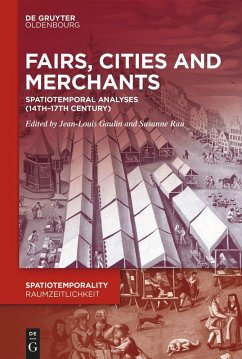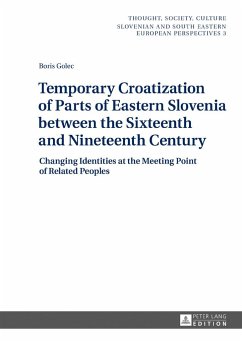
Rethinking Violence in Valencia and Catalonia
Fourteenth to Seventeenth Century
Herausgegeben: Cortijo Ocaña, Antonio; López Juan, Guillermo; Llinares Planells, Alejandro
Versandkostenfrei!
Versandfertig in 6-10 Tagen
59,95 €
inkl. MwSt.

PAYBACK Punkte
0 °P sammeln!
This book provides multifaceted analyses of everyday interpersonal violence in the Kingdom of Valencia and Catalonia between the 14th and 17th centuries. Employing qualitative and microhistorical approaches, its contributors weave a narrative tapestry where revenge among religious minorities, the impact of war on Muslim rural communities, and the phenomenon of banditry intertwine to reveal the social and cultural complexity of the era. Furthermore, its chapters explore piracy and mercenary activities, uncovering how these practices influenced social and economic dynamics.Their contributors als...
This book provides multifaceted analyses of everyday interpersonal violence in the Kingdom of Valencia and Catalonia between the 14th and 17th centuries. Employing qualitative and microhistorical approaches, its contributors weave a narrative tapestry where revenge among religious minorities, the impact of war on Muslim rural communities, and the phenomenon of banditry intertwine to reveal the social and cultural complexity of the era. Furthermore, its chapters explore piracy and mercenary activities, uncovering how these practices influenced social and economic dynamics.
Their contributors also delve into the trials against witches and the repression of heretical deviations or non-normative behaviors, offering a critical view on how these events were framed within the struggle for power and social control. The cumulative work of the authors not only sheds light on dark and forgotten aspects of history, but also prompts reflections on the nature of violence and its role in the construction of collective identities. With meticulous research and an interdisciplinary focus, this book is essential for understanding the history of violence in the Iberian Peninsula and its transcendence on contemporary society.
Their contributors also delve into the trials against witches and the repression of heretical deviations or non-normative behaviors, offering a critical view on how these events were framed within the struggle for power and social control. The cumulative work of the authors not only sheds light on dark and forgotten aspects of history, but also prompts reflections on the nature of violence and its role in the construction of collective identities. With meticulous research and an interdisciplinary focus, this book is essential for understanding the history of violence in the Iberian Peninsula and its transcendence on contemporary society.














